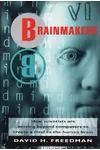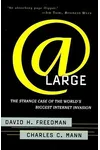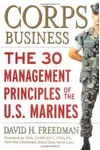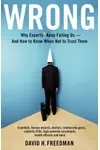Picture a Canadian statistician whose work transformed how we understand data and its real-world impact—meet David H. Freedman! Born in Montreal in 1938, Freedman became a titan of mathematical statistics, blending rigorous theory with practical applications. His classic textbook Statistics and critical approach to model evaluation have inspired generations, making complex concepts accessible and impactful.
From Berkeley’s lecture halls to courtrooms, Freedman’s legacy is one of clarity and skepticism, ensuring statistics serve truth, not assumption. Let’s dive into the life of this remarkable scholar whose work still shapes public policy and scientific inquiry.
The Making of David H. Freedman
David Amiel Freedman was born on March 5, 1938, in Montreal, Canada. He earned a B.Sc. from McGill University in 1958, followed by an M.A. and Ph.D. from Princeton University by 1960. Joining UC Berkeley’s Statistics Department in 1961, he transitioned from a Bayesian-leaning theorist to a leading applied statistician. His early career was shaped by a commitment to making statistics relevant, driven by the challenge of engaging undergraduates with real-world problems.
David H. Freedman’s Groundbreaking Works
Freedman’s contributions spanned over 200 articles and six books, with his textbook Statistics (co-authored with Robert Pisani and Roger Purves, 2007) standing out as a game-changer. Praised for its clear prose and real-world examples, it transformed statistics education, emphasizing critical thinking over rote formulas. The book, now in its fourth edition, remains a staple for students worldwide.
His advanced text, Statistical Models: Theory and Practice (2005), bridged theory and application, critiquing overreliance on models like Cox models in randomized trials. Articles like “Statistical Models and Shoe Leather” (1991) and “What is the Chance of an Earthquake?” (2003) showcased his knack for exposing flawed assumptions in fields from epidemiology to seismology. Freedman’s work on causal inference and the bootstrap further cemented his influence, offering robust tools for data analysis.
Known for his circumspect frequentist approach, Freedman challenged Bayesian priors, advocating for empirical grounding. His writing was precise yet accessible, making complex ideas approachable while maintaining mathematical rigor.
Why David H. Freedman Matters
Freedman’s impact extended beyond academia. As a forensic statistician, he testified in cases involving employment discrimination, voting rights, and even golf ball flight patterns, ensuring statistical integrity in legal proceedings. His work on census adjustments and public policy, like hormone replacement therapy studies, influenced societal decisions. By emphasizing the limits of statistical models, he fostered a culture of skepticism and precision that continues to guide researchers and policymakers.
His transformation of Berkeley’s Statistics Department into an applied powerhouse, alongside colleagues like Peter Bickel, left a lasting academic legacy. In 2003, he received the National Academy of Sciences’ John J. Carty Award for his contributions to statistical theory and practice.
- Born: March 5, 1938, Montreal, Canada
- Key Works: Statistics (2007), Statistical Models: Theory and Practice (2005)
- Awards: John J. Carty Award (2003), Fellow of the American Academy of Arts and Sciences
- Died: October 17, 2008, Berkeley, California
Grab a copy of Statistics and dive into David H. Freedman’s world of clarity and critical thinking—your data-driven journey awaits!




